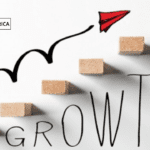African fintech funding dropped 16% as African fintech companies raised $117 million in the first quarter (Q1) of 2025.
This was disclosed by the State of Fintech, a report by global venture funding analytics company CB Insights. According to it, this represents a nearly 16% decline from the $139 million raised in the last quarter of 2024.
However, the decline is not up to the $131 million raised during the same period last year, amounting to a 10.6% decline.
This is coming as the world witnessed an uptick in fintech funding, powered by Binance’s stupendous $2 billion super mega raise. Altogether, fintech companies globally raised a cumulative $10.3 billion. Thus, the $117 million raised by African fintechs represents 1.2% of the total raised by financial technology companies globally.
Indeed, the global fintech Q1 raise marks a rejuvenation, as it represents an 18% quarterly increase and the highest quarterly raise since Q1 2023, when fintechs around the world raised $16.3 billion.
Indeed, the Q1 2025 total puts the year on course to surpass the $34.4 billion raised in 2024 and maybe the $42.1 billion raised in 2023.
Another factor that saw a boost in global fintech funding is the growing interest in artificial intelligence-powered solutions.
Indeed, 15 per cent of the total global fintech funding in the quarter came to startups that have integrated AI into their offerings. This is up from 14.5 per cent share recorded in Q4 2024 and 9.4 per cent recorded in the same quarter of last year.
Read Also: South Africa drops controversial VAT hike
More insights from the African fintech Q1 funding trend
Aside from being the third slowest quarter since the second quarter of 2021, Q1 2025 also lags in the number of deals recorded. The 20 fintech deals recorded during the period represent the second smallest over the last four years, only surpassed by the 18 deals recorded in Q4 2024.
Indeed, there has been a steady decline in the number of fintech quarterly deals since Q3 2023. It dropped sharply from 53 to 24 deals in Q3 2024 before hitting an all-time low of 18 deals the next quarter.
As can be expected, the majority of the funding that came to African fintechs went to early-stage startups, with startups in this class responsible for 70 per cent of the total.
This puts 2025 in a position to eventually hit the yearly average of 85 per cent.
While the investments into African early-stage startups are good because they guarantee that innovation still thrives in the space, it also depicts a lack of confidence in older startups, leading to a dearth in mega funding rounds, as was witnessed.
Startups that received funding in Q1
Speaking of funding rounds, South African fintech, Naked, led the African fintech funding space with its $37 million series B raise back in January. The round saw participation from BlueOrchard, DEG, Hollard Insurance, International Finance Corporation and Yellowwoods.
Egypt’s Khazna came a distant second, having raised $16 million in a Series A funding round in February. The round witnessed participation from Disruptech Ventures, Khwarizmi Ventures, Nclude, Quona Capital, and Speedinvest.
Nigeria’s Raenest is next with an $11 million Series A funding round in February. Venture Capitalist firms that took part in the round include A QED Investors, Norrsken22, P1 Ventures, Seedstars and Ventures Platform.
Africa’s latest unicorn, Moniepoint, continued its investment drive with a $10 million Series C extension in January, backed by Visa. Uganda’s Furaha also raised $10 million in a Series A funding round in January, powered by SC Ventures and Yabx.
Other startups that contributed to African fintech’s Q1 raise include: Nigeria’s SeamlessHR which raised $9 million in a Series A funding round backed by Helios Digital Ventures and the Bill & Melinda Gates Foundation; and Ghana’s Affinity which raised $8 million in a seed round backed by Backed VC, Grazia Equity, Attijariwafa Bank, Enza Capital, and FINCA International.
Others are Enza from Egypt which raised $7 million in seed funding backed by Algebra Ventures and Quona Capital; Amwal, another Egypt-based fintech that raised $4 million in seed funding backed by Shorooq Partners, Outlier Ventures, TA Ventures, WAED Ventures and Fintech Saudi; South Africa’s Jem raised $2 million in seed funding powered by Next176; and Nigeria’s Rivy which raised $2 million in seed funding backed by All On and EchoVC Partners.
Comment and follow us on social media for more tips:
- Facebook: Today Africa
- Instagram: Today Africa
- Twitter: Today Africa
- LinkedIn: Today Africa
- YouTube: Today Africa Studio
















